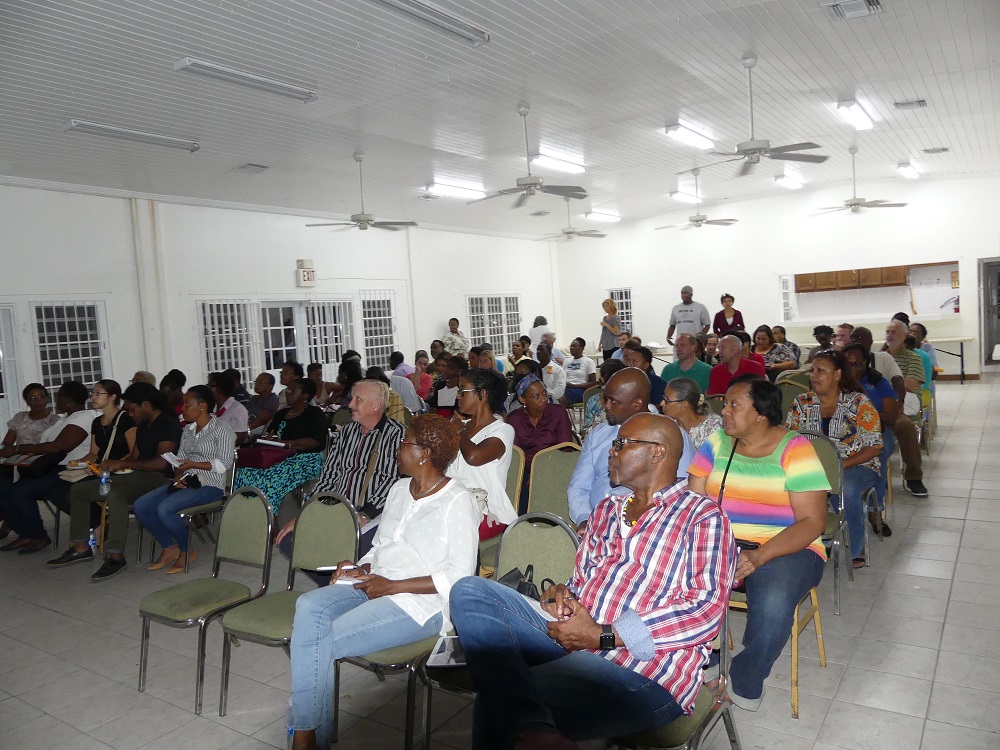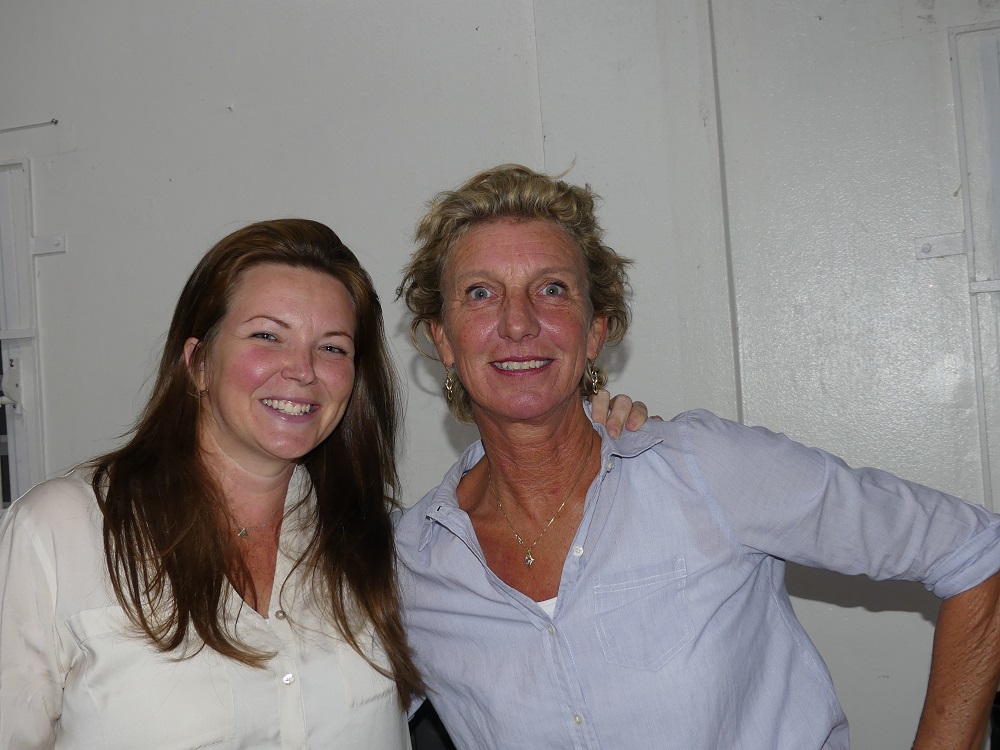Disaster Fund makes $1.5 million available for social projects

PHILIPSBURG – Around one hundred representatives of local non-governmental organizations (NGO’s) turned out for an information meeting at the Senior Citizens Recreational Center in Hope Estate on Tuesday evening. The objective: to hear more about funding options for social projects by the Dutch Disaster Fund. The fund has €2 million available for projects, of which two-third – around €1.3 million ($1.5 million) – is available for projects in St. Maarten, Saba and Statia.
Fleur Hermanides and José Sommers, project managers at the Collaborating Funds gave an explanation to the audience about ways to get access to the funding.
The Disaster Fund was established in the Netherlands in 1935. Participating organizations are the Red Cross, the Orange Cross, Cordaid and Church in Action.
“The purpose of the post-Irma recovery fund is to support social organizations and to contribute to a sustainable future,” Sommers said. “The fund is not there to pay for repairs to damages suffered by individuals, to repair schools, churches or hospitals, or to repair infrastructure.”
NGO’s have until July 31 to submit funding requests for their projects. As assessment committee in the Netherlands takes a decision about these request within 4 to 8 weeks after receiving them.
The duration of the projects is 1.5 years max and they have to be completed by December 31, 2019.
Fleur Hermanides explained the details of the application form. NGO’s have to avoid conflicts of interest within their organization, so they have to avoid family relations. They have to explain the relation between their project and the hurricane, say something about the expected impact, how many people they expect to reach and about the level of volunteerism.
Other requirements are a declaration of in-kind donations to the project. NGO’s also have to submit an extract of their registration at the Chamber of Commerce, their articles of incorporation and an annual report.
Large projects have to be accompanied by an official audit and of course the NGO’s have to submit their project plan.
Requests have to be sent to secretariat@ehbo.nl.
The assessment committee in the Netherlands judges projects on several characteristics. The committee will assess whether a project is going to make a difference, whether it complements existing projects and compare costs to efforts. The future of a project after 1.5 year – the sustainability criterion – also plays a role in the decision making process.
NGO’s should also think ahead and consider funding options after the funding from the disaster fund ends.
Four months after a project is finished, NGO’s have to submit a report about financing and content.
During the projects external observers will visit to monitor progress. Organizers of large projects will have to file their own progress reports.
“Local advisors will advise NGO’s, review projects and connect NGO’s with other organizations,” Sommers said. “We will however not write your project.”
After questions from the audience, it appears that apart from NGO’s, non-profit organizations who have social projects can also request funding. Schoolboards do not have access to the funds, but PTA’s (Parent Teacher Associations) do.
Churches are another matter. Sommers: “Churches that do a food project and that can show that they help all people and not only those of their own religion, can apply as well.”

Photo caption: Project advisors Fleur Hermanides (l) and José Sommers. Photo Hilbert Haar.
Top photo caption: Many representatives of local non-governmental organizations attended the meeting organized by the Collaborating Funds. Photo Hilbert Haar.


























